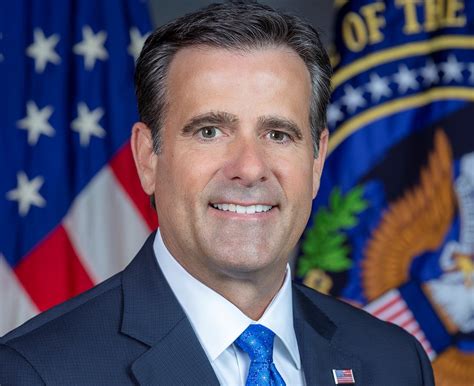A Quote by Ravi Shankar
To me, you know, from my childhood I always had a fascination for United States.
Quote Topics
Related Quotes
There is a sense in which the United States ambassador speaks to the United States, as well as for the United States. I have always seen my role as a thermostat rather than a thermometer. So I'm going to be actively working... for my own concerns. I have always had people advise me on what to say, but never on what not to say.
There is a sense in which the United States Ambassador speaks to the United States, as well as for the United States. I have always seen my role as a thermostat, rather than a thermometer. So I'm going to be actively working... for my own concerns. I have always had people advise me on what to say, but never on what not to say.
Just before I left [Cuba], I was about to transfer to the university. I had decided I had had enough experience in work in the manual areas. But then I got word from the United States that I could return...that my party had gathered enough information about the false charges that were against me for me to return to the United States.
Pope John Paul II was fascinated by the United States. And I think he was initially surprised at the vigor of the Catholic Church in the United States. Maybe some of the press that we had gotten he found wasn't true. No, I think he suspected the church in the United States. Did he challenge us to some things? Sure, he did. But, no, I always - I think there was a good alliance. There was a good gel there.
I'm representing the United States. And I'm representing the United States, and my office is representing the United States day after day in front of the court. And I think it's the right thing to do, to carry that out with some dignity and some respect for the process and respect for the institution. And so that led me to just, you know, move the dial a little bit in the direction of calmness.
I was working with a number of African heads of state. And after their initial surprise, I think many of them just treated me as they would anybody else. They had to deal with me as a representative of the United States of America, and the United States of America was too important to be dismissed or ignored on any grounds.
In the Islamic world, the U.S. is seen in two quite different ways. One view recognizes what an extraordinary country the U.S. is.The other view is of the official United States, the United States of armies and interventions. The United States that in 1953 overthrew the nationalist government of Mossadegh in Iran and brought back the shah. The United States that has been involved first in the Gulf War and then in the tremendously damaging sanctions against Iraqi civilians. The United States that is the supporter of Israel against the Palestinians.
The idea the president of the United States was warned that Al-Qaeda was going to attack the United States and did nothing about it - really? Do you think any president of the United States, if he had even an inkling there was going to be an attack, they wouldn't have moved heaven and earth to try to stop it?
In the United States the White House has appointed two different independent panels who had full access to classified information for the last 10 years that master balance has been in place in the United States, and they found that despite intercepting the calls - everybody in the country, - it had never stopped a single terrorist attack. So the question is, why would these officials be pursuing these policies, if we know they don't work, if they don't stop terrorism?
It is well known that homosexuality is a criminal offense in the United States, in four US states. If it is good or bad, we know the decision of the Constitutional Court, but this problem has not been dealt with yet, it is still being addressed by the legislation of the United States. This is not the case in Russia.

































